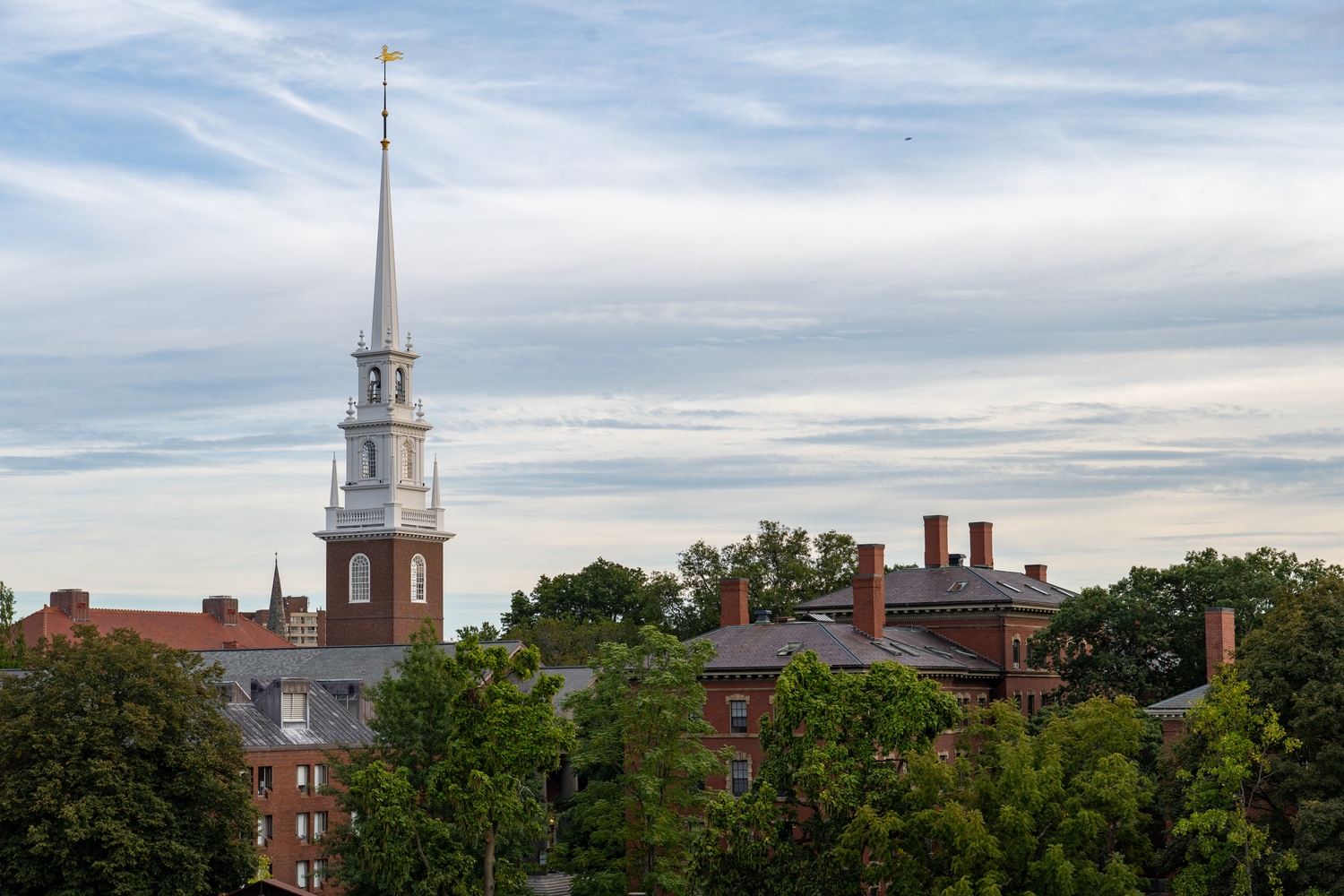
News
Summers Will Not Finish Semester of Teaching as Harvard Investigates Epstein Ties

News
Harvard College Students Report Favoring Divestment from Israel in HUA Survey

News
‘He Should Resign’: Harvard Undergrads Take Hard Line Against Summers Over Epstein Scandal

News
Harvard To Launch New Investigation Into Epstein’s Ties to Summers, Other University Affiliates

News
Harvard Students To Vote on Divestment From Israel in Inaugural HUA Election Survey
Harvard’s Task Forces Are Still Waiting for Their Pluralism Hub

Six months after a joint subcommittee of Harvard’s task forces on antisemitism and anti-Arab bias recommended that Harvard establish a campus center for pluralism, the University has yet to enact their recommendation.
Establishing a hub for pluralism work — initiatives that emphasize mutual cooperation and respect across diverse identities — was the overarching recommendation of the subcommittee’s final report, released alongside both task force reports in April 2025.
“The campus needs an organizational focal point for pluralism work,” professors Danielle Allen and Ali Asani, the authors of the report, wrote. They suggested that a pluralism hub could be established through either the creation of a new University-wide center or a reimagining of the existing Harvard Foundation — which at the time referred to the Harvard Foundation for Intercultural and Race Relations.
But so far, the University has distributed its pluralism efforts across its schools, without constructing a single, centralized home for the work.
The authors of the task force reports based their recommendation on a broad definition of pluralism focused on recognizing a diversity of identities in “race, ethnicity, gender, sexuality, faith, viewpoint, geographic background, and the wide variety of experiential characteristics” and ensuring that people “respect, relate, and cooperate with each other.”
Harvard President Alan M. Garber ’76 pledged to act on the task force’s recommendations in a letter to Harvard affiliates with the release of the reports in April.
A Harvard spokesperson pointed to initiatives that fall under its definition of pluralism — including all programming that enables affiliates to engage in cross-difference dialogue, bridge-building, and civil discourse. They declined to comment on any future plans to create a hub for pluralism.
The steps Harvard has taken since then to foster pluralism on campus at the College level have focused primarily on religious identity.
Since the release of the reports, Harvard launched a new Presidential Interfaith Engagement Initiative headed by former Hillel Campus Rabbi Getzel Davis, in response to recommendations from the subcommittee.
In addition to building on preexisting programs such as the “Pluralism Passports,” which invite affiliates to attend religious events hosted by different faith groups, the initiative also piloted a Religious, Spiritual and Ethical Life Fellowship for first-year students.
Religious, spiritual, and ethical life was highlighted in the joint subcommittee’s recommendations, which included the establishment of an office focused on campus interfaith dialogue. But it was one part of the pluralism plan they envisioned, with a formal center as the “focal point.”
The proposed center, as recommended by the Task Force, was meant to serve as an “institutional anchor for practices of pluralism on campus.” Its work could include a fellowship program, professional development opportunities, and mediation resources, according to the report authors.
Though websites for both the Presidential Interfaith Initiative and the new Harvard Foundation reference pluralism, neither office acts as the “Center for Pluralism” that the subcommittee envisioned. The Foundation only serves the College, though the subcommittee imagined University-wide pluralism programming — and the Interfaith Initiative offers programming focused primarily on religious and spiritual identities.
Shifting the Harvard Foundation to a center specifically focused on pluralism could fulfill some of the subcommittee’s recommendations. But Divinity School Professor Diana L. Eck, the founder of a long-running but separate academic study known as the “Pluralism Project” and a member of the presidential task force on anti-Muslim, anti-Arab, and anti-Palestinian bias, said she was unsure whether that suggestion, or the suggestion to establish a new center, was being seriously considered.
“I don’t know if either of them is being taken seriously, but I think that’s something we'll kind of wait and see,” she said.
“But my feeling, Harvard has so many centers, I don’t know that we need another one,” Eck added.
—Staff writer Sebastian B. Connolly can be reached at sebastian.connolly@thecrimson.com. Follow him on X @SebastianC4784.
—Staff writer Julia A. Karabolli can be reached at julia.karabolli@thecrimson.com.
Want to keep up with breaking news? Subscribe to our email newsletter.
